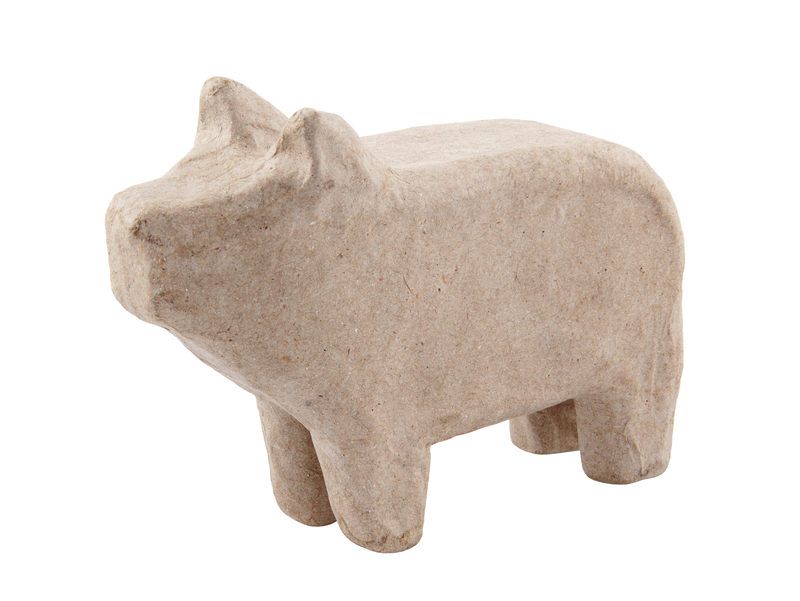Smart Strategies to Save Big on Bulky Item Disposal
Every household or business faces the challenge of getting rid of large, unwanted items at some point. From old sofas and mattresses to worn-out appliances and broken furniture, bulky item disposal can be both a logistical headache and a financial drain. Fortunately, there are smart strategies you can use to save big while effectively and responsibly getting rid of these oversized objects.
Understanding Bulky Item Disposal: Why It Can Cost You
Bulky item disposal refers to the process of removing large household or commercial items that are too big for regular garbage collection. Municipal waste management services often restrict the types and quantities of oversized items they will accept, requiring homeowners and businesses to seek alternative solutions. The costs involved can be significant, ranging from municipal pick-up fees and landfill charges to private junk removal services.
Why Does Disposing Large Items Get Expensive?
- Special handling and transportation requirements
- Landfill tipping fees
- Legal restrictions on dumping certain materials
- Inadequate space in standard garbage bins
- Environmental surcharges for specific items
Given these factors, it's no surprise that many people search for cost-effective bulky item removal solutions. Luckily, there are several smart ways to manage this task without breaking the bank.
1. Plan Ahead to Save on Bulky Waste Disposal
The key to saving money is strategic planning. Waiting until the last minute can force you into paying premium rates or emergency surcharges for same-day pickups. Instead:
- Assess all your bulky disposal needs at once, so you can batch your items.
- Research local bulk trash day schedules - many municipalities offer free or reduced-fee pick-ups several times a year.
- Check if your HOA or community has seasonal clean-up events.
- Coordinate with neighbors for shared removals, splitting costs and reducing trips.
This proactive approach ensures you can take advantage of special disposal events or discounts.
2. Donate or Reuse Whenever Possible
One of the most effective ways to carry out affordable bulky item disposal is to avoid paying for it at all! If your items are still in usable condition, consider donation or reuse:
- Contact local charities (Habitat for Humanity, Salvation Army, Goodwill, etc.) that accept furniture, appliances, and other large goods.
- Try listing items on Freecycle, Craigslist, Facebook Marketplace, or Nextdoor to give away or sell.
- Check if local churches, shelters, or schools are in need of specific items.
By donating, you not only save on disposal fees but may also qualify for a charitable tax deduction. Plus, you help the environment by keeping items out of the landfill!
3. Sell or Salvage for Value
For certain items, you can actually make money while disposing of them. Here's how:
- Scrap Metal - Old appliances, bed frames, and grills can be stripped for metal and sold to recycling centers.
- Parts Resale - Components like motors, wiring, or even upholstery may have value to hobbyists or repair shops.
- Secondhand Markets - Try selling working appliances or furniture via local classified ads or garage sales.
Selling or salvaging helps offset your large item removal costs and is environmentally friendly.
4. Utilize Municipal and Community Bulky Waste Collection
Many city or county governments offer special bulky item collection services for residents. These may include:
- Scheduled curbside pickup on specific dates (often free or low-cost)
- Drop-off events at community centers or transfer stations
- Subsidized large item pick-up for certain groups (seniors, veterans, low-income households)
To take advantage of these options, monitor your municipality's website or sign up for local newsletters. Remember to adhere to any rules regarding item size, type, and preparation to avoid extra charges.
Pro Tip:
If you miss the official collection day, ask your neighbors if you can combine items for the next one, or check if your city allows for bulk drop-offs at approved facilities.
5. Do-It-Yourself Bulk Waste Drop-Off
If you have access to a pickup truck or trailer, hauling your own bulky items to a landfill, recycling center, or drop-off site can save on professional hauling fees. Here's how to maximize your savings:
- Contact your local landfill or waste facility for disposal rates and acceptable items.
- Schedule your trip to coincide with community discounted days or free drop-off periods.
- Borrow or rent a truck if you don't own one; costs may be lower than hiring a full-service removal company.
- Double up your trip with neighbors' items to split the cost further.
*Bonus tip*: Some stores or recycling centers will take old appliances or electronics at no charge, especially if you're purchasing a new replacement.
6. Compare Professional Junk Removal Services
If you don't have the time or means to handle bulky waste yourself, consider hiring a professional. But don't settle for the first quote you get! Use these strategies to save big on bulk junk removal:
- Get Multiple Quotes - Contact at least three local companies for pricing.
- Ask About Pricing Models - Some charge by volume, others by weight or time. Choose what makes the most sense for your items.
- Inquire About Bulk Discounts - Some services offer reduced rates if you have multiple items or coordinate with neighbors for a group pickup.
- Negotiate - Smaller or independent companies may be open to price negotiation, especially during off-peak times.
- Watch for Special Offers and Coupons - Many junk removal businesses run promos or discounts for first-time customers.
Always confirm what is included in the price to avoid hidden fees, such as surcharges for certain items (e.g., mattresses or electronics), labor, or travel distance.
7. Explore Specialized Recycling Programs
Many cities now run specialized recycling programs for items like electronics, mattresses, tires, and appliances. These services can either be free or much cheaper than landfill dumping.
- Check manufacturer programs for take-back initiatives on old electronics or appliances.
- Local recycling centers may break down and recycle materials, reducing your environmental impact and cost.
- State-based recycling laws can require retailers to accept old items for recycling (e.g., when purchasing a new mattress or fridge).
Recycling isn't just good for the environment--it can also save money by diverting items from expensive general waste streams.
Additional Example Programs:
- E-Waste events - Drop-off old electronics free of charge.
- Tire Amnesty Days - Free disposal for car, bicycle, or truck tires on select dates.
- Mattress recycling - Some areas have dedicated programs for mattress pickup and recycling.
8. Avoid Common Mistakes That Increase Disposal Costs
Don't let small oversights lead to higher charges or fines. Watch out for these common pitfalls in bulky item trash removal:
- Illegal dumping: Never abandon large items on sidewalks, alleys, or open lots. This can result in hefty fines.
- Missed prep requirements: Some services require you to dismantle items, drain fluids, or bag certain components.
- Improper sorting: Mixing prohibited materials (batteries, chemicals) with general waste can incur surcharges or even legal trouble.
- Ignoring size or weight limits: Exceeding allowable limits for a pick-up can double your cost or result in refusal to collect.
Always read the rules provided by your chosen disposal service to avoid unnecessary expenses.
9. Go Green for Long-Term Savings
Eco-friendly disposal methods often pay off in cost savings and community goodwill. Consider these sustainability-focused options:
- Upcycling - Repurpose furniture or components for new uses (turn an old dresser into a storage bench!).
- Community Swaps - Participate in neighborhood "swap days" to give and receive items without spending a dime.
- Hire Green-Certified Haulers - Some junk removal firms guarantee that a high percentage of hauled items are recycled or donated, often at a lower total cost.
Going green not only benefits your wallet but the planet as well.
10. Best Practices for Businesses with Bulk Item Disposal Needs
Commercial operations face unique challenges in managing large-scale item disposal. Here are strategies businesses can use to reduce costs:
- Contract with dedicated waste management providers for regular or scheduled pickups, often at a volume discount.
- Sell or auction off old furniture, fixtures, or equipment to recoup part of the expense.
- Donate usable items for a tax write-off and public relations boost.
- Establish internal guidelines to ensure employees prep or sort items correctly, avoiding fines and additional labor charges.
- Consider short-term dumpster rentals for renovation or large-scale cleanouts, ensuring you obey all rules regarding prohibited materials.


Frequently Asked Questions (FAQs) About Bulky Item Disposal
What counts as a bulky item?
Generally, bulky items include furniture (sofas, dressers, mattresses), appliances, carpeting, tires, exercise equipment, and other items too large for regular curbside bins. Each municipality may have specific lists.
Is it illegal to leave furniture on the curb?
In most communities, curbside dumping outside of designated bulk collection days or without a scheduled pick-up is prohibited. Fines can be steep, so always check local ordinances!
How can I avoid landfill fees for appliances?
Use manufacturer recycling programs, community e-waste days, or retailer take-back schemes. Many take old appliances for free if you purchase a new replacement.
Does donating save money on disposal?
Absolutely! Donation reduces hauling costs and, if you itemize deductions, may provide a tax benefit as well.
Conclusion: Save Money and the Environment with Smart Bulky Item Disposal
Disposing of oversized waste doesn't have to be expensive or stressful. By planning ahead, using local resources, and considering green alternatives, you can achieve low-cost bulky item waste removal for your home or business. Remember to research every available option--from municipal collection events to donation, recycling, or hiring the right junk hauling professionals. The smartest disposal strategy saves you money, time, and the environment!
Ready to tackle your next bulky item disposal task? Use these strategies to save big, declutter responsibly, and help your community go green!
Related Resources:
- Local government website: Bulk Collection Schedules
- EPA: Mattress and Furniture Recycling Tips
- Charity websites: Find donation pick-up near you